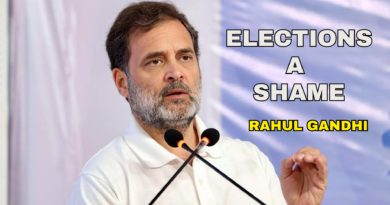6G SERVICES COMING SOON…….PRIME MINISTER MODI’S KEY STATEMENT
India is moving fast towards becoming a global technology leader. Prime Minister Narendra Modi recently made an important announcement about the country’s future in digital and industrial development. He said that India’s first indigenous semiconductor chip will be launched in 2025. Along with this, he also shared that the country will speed up its work on 6G technology under the Made in India program. In addition, the government has planned to export electric vehicles (EVs) to 100 countries, marking a major step in India’s journey towards clean energy and global trade.
These announcements are not only about technology but also about India’s vision for the future. They show that India wants to become self-reliant, reduce dependency on other nations, and at the same time, provide solutions to the world.
India’s First Indigenous Semiconductor Chip
One of the biggest challenges for India in recent years has been the lack of semiconductor production. Semiconductors are the tiny chips used in smartphones, laptops, cars, medical devices, and almost every modern gadget. Until now, India has been importing most of these chips from countries like Taiwan, South Korea, and the USA.
Prime Minister Modi’s announcement that India will launch its first made-in-India semiconductor chip in 2025 is a turning point. This will not only reduce imports but will also help India build a strong electronic manufacturing industry.
With its own semiconductor technology, India can:
Boost the production of smartphones, computers, and advanced electronics.
Strengthen industries like defense, healthcare, and automobile manufacturing.
Create more jobs for skilled engineers and workers.
Save foreign currency by reducing imports.
The global demand for chips is growing every year, and India’s entry into this field will make the country a strong competitor in the international market.
Development of 6G Under ‘Made in India’
While most of the world is still rolling out 5G, India has already set its eyes on 6G technology. Prime Minister Modi said that the launch of India’s semiconductor chip will also speed up the development of 6G.
6G is expected to be 100 times faster than 5G. It will make communication seamless and open new possibilities for innovation. Some benefits of 6G include:
Ultra-fast internet speeds for instant downloads and real-time communication.
Support for advanced technologies like artificial intelligence, robotics, and self-driving cars.
Better healthcare solutions such as remote surgeries and medical monitoring.
Smarter cities with connected devices that make life easier.
By developing 6G under the Made in India initiative, the country wants to ensure that it does not depend only on foreign companies for this next-generation technology. Instead, India will play a leading role in setting global standards for 6G.
India’s Plan to Export Electric Vehicles
Another big announcement by the Prime Minister was related to electric vehicles (EVs). The government plans to export Indian-made EVs to 100 countries in the coming years.
This step will bring multiple benefits:
Strengthening the economy: Exporting EVs will bring more income to the country.
Job creation: Manufacturing EVs at a large scale will provide employment to lakhs of people.
Clean environment: Promoting EVs worldwide will help in reducing pollution and carbon emissions.
Brand India: It will prove that Indian technology is strong, reliable, and competitive in the world market.
India has already made progress in EV manufacturing with companies producing electric cars, bikes, and buses. By exporting these vehicles, India aims to become a global hub for clean mobility.
The Bigger Vision: Self-Reliant India
These announcements by Prime Minister Modi are part of the larger vision of Atmanirbhar Bharat (Self-Reliant India). The goal is to make India capable of producing advanced technology on its own instead of depending on imports.
The launch of indigenous semiconductors, development of 6G, and export of EVs will help India:
Reduce dependence on other nations.
Become a technology exporter rather than an importer.
Improve its position as one of the fastest-growing economies in the world.
Provide solutions for global problems like climate change and digital inclusion.
Challenges Ahead
While the plans are ambitious, there are also challenges that India must overcome:
Building a semiconductor industry requires heavy investment and advanced skills.
6G research needs global cooperation and massive infrastructure.
EV exports demand strong manufacturing capacity, better charging networks, and competitive pricing.
However, with government support, private sector involvement, and India’s growing talent pool, these challenges can be overcome.




